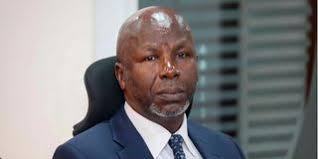The Managing Director and Chief Executive Officer of the Kenya Electricity Generating Company (KenGen), Abraham Serem, has admitted that two major ethnic groups dominate the workforce of the state-owned power company. This revelation has sparked wider discussions about ethnic imbalance across Kenya’s public institutions and government-owned corporations.
Serem made the admission while responding to concerns raised by lawmakers and members of the public over employment inequality in government agencies. His remarks have reignited national debates on tribalism and unequal representation in the public sector, a long-standing issue in Kenya’s civil service.
KenGen is one of Kenya’s biggest parastatals responsible for generating the bulk of electricity for the country. However, like many other state-run institutions, its staffing has come under scrutiny for lacking fair representation of Kenya’s over 40 ethnic groups. According to reports, the Kikuyu and Kalenjin communities make up a large percentage of KenGen’s staff, exceeding their population share.
The ethnic imbalance in KenGen is not isolated. The Kenya Ports Authority (KPA) also recently disclosed that some ethnic groups hold majority positions in the agency, with the Bajuni community alone accounting for 73 out of 412 employees. Similarly, the National Social Security Fund (NSSF) has faced backlash for favouring certain ethnic groups in its hiring, leaving over 17 tribes grossly underrepresented.
These developments have put the spotlight on how government agencies recruit staff and whether the principle of inclusivity is being followed. The Public Service Commission (PSC) has responded by drafting the Public Service Commission (Affirmative Action) Regulations 2024. These new rules are aimed at ensuring ethnic balance in public service appointments and may include punishments like demotion or removal for chief executives and permanent secretaries who fail to meet diversity targets.
The issue of ethnic dominance in employment, especially in parastatals and key government positions, has remained a sensitive topic in Kenya. Historical political alliances, regional loyalties, and power-sharing deals have all played roles in the imbalance seen in many government agencies. According to civil service employment records, members of the Kikuyu and Kalenjin communities occupy a disproportionately large number of government jobs.
Previous audits by the National Cohesion and Integration Commission (NCIC) show that six ethnic groups occupy nearly 80% of all jobs in Kenya’s state corporations. This means smaller ethnic groups are often left out of opportunities to serve in the public sector, despite their qualifications. The NCIC has advised that state agencies be shielded from political influence to encourage fairness and national unity.
The situation is not only limited to employment in ministries and agencies but also affects leadership in boards and management positions. A recent study showed that only four tribes dominate board chair roles in Kenya’s state-owned companies, making it difficult for individuals from minority tribes to climb the leadership ladder.
The Kenyan Constitution and public service laws encourage inclusiveness, equity, and representation of all communities in national institutions. However, these laws are not being fully implemented. Analysts say that without stronger enforcement and political will, the same pattern of dominance will continue, leading to public distrust and national disunity.
Civil society organisations, legal experts, and some politicians have called on the Kenyan government to take immediate steps to address this problem. They argue that qualified citizens from minority communities must be given equal opportunity in employment, especially in the public sector where taxpayer money is used to run operations.
This renewed focus on ethnicity in employment comes as Kenya continues to build stronger democratic institutions and aims to promote national integration. Many Kenyans believe that only by embracing fairness in recruitment and leadership appointments can the country achieve true unity and development.
The challenge now lies with the government and its institutions to take corrective measures and ensure that Kenya’s diversity is reflected in its public workforce. The outcome of the proposed affirmative action regulations and their enforcement will likely determine the future of ethnic balance in public service employment in the country.
